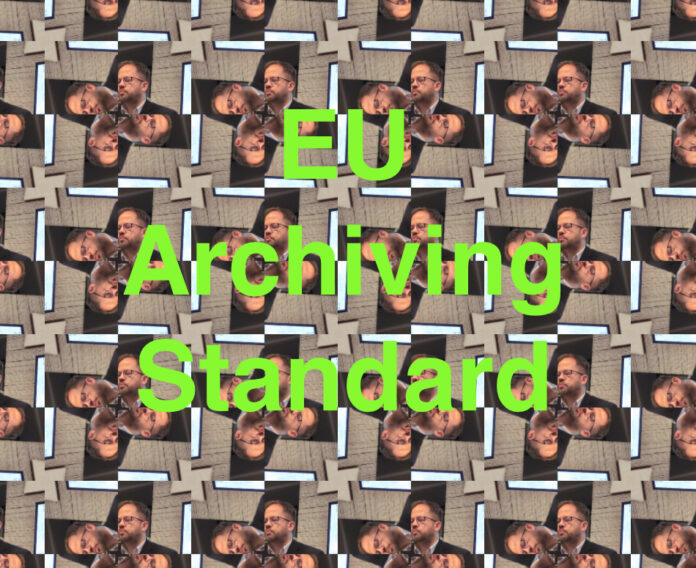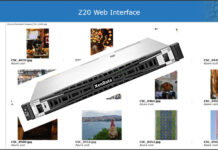A European Commission-sponsored data archiving standard that can be adopted globally has been given fresh impetus with new funding. It aims to make sure digital records are interoperable, open, transparent, legally compliant, and sustainably accessible.
The eArchiving Initiative started in October 2022 and was given two-year Commission funding until October 2024. On an IT Press Tour in Istanbul, Turkey, this week, Blocks & Files and other press and analysts were told the project had been extended for another year from this October, and was “likely” to be given further funding until 2026.
The overall aim of the project is to “use the data from the past to support and predict the future” through common architectures, with the help of open source archiving tools, standards, and interoperability, supporting connected archives, and coordinating efforts with the provision of a support center.
That support center sees inquiries initially funneled through participants in Spain, then triaged through other European countries to help organizations get their data archives set up in a consistent way.
The eArchiving Initiative has followed other data archiving efforts supported by the Commission, such as DG CNECT and the E-ARK Consortium, and has attracted support from specialist data consulting firms, global information system and data discovery technology players, and a number of countries’ national archives, but not the data storage vendors that enable data to be archived, like Spectra Logic, NetApp, and Veeam.
According to the eArchiving Initiative, the archiving benchmarks and tools, which are also based on preceding initiatives, have been adopted by various government agencies and enterprises across Europe, the US, Australia, Latin America, and Asia. For example, if an organization wants to check that a data archiving project or system will meet certain standards, it can check that providers’ offerings are compliant with E-ARK benchmarks and standards.
The standards being worked to are modular so organizations can choose which modules are the most important to them now. Some are based on the Open Archival Information System – reference model ISO 14721. The modules cover data context, behaviors, rendering information, and structure, for instance. This way of working is done at the same time as considering archival principles such as availability, usability, trustworthiness/authenticity, completeness, time proof, findability, accessibility, interoperability, and reusability.

Gregor Završnik, CEO of Geoarh and a member of the EU Digital Archiving group, said: “All our tools are open source based on a freemium model as many users may well need a contractor to come in and implement them, which is where many of our consortium members will become involved.”
With money clearly tight, considering the initiative was only given an initial two years, and was waiting for two one-year renewals, Blocks & Files asked Završnik why his organization had not gone to the data storage vendors for sponsorship. After all, more data archiving means potentially more business for them.
“We haven’t sought support from the storage platform vendors so far, and it may be a problem for some of them if organizations start asking them to start standardizing on our systems and tools for their archiving offerings, but it’s up for discussion,” he said.
The eArchiving Reference Architecture Version 2.0 was published this year, and an online version is available at the E-ARK Knowledge Centre.








